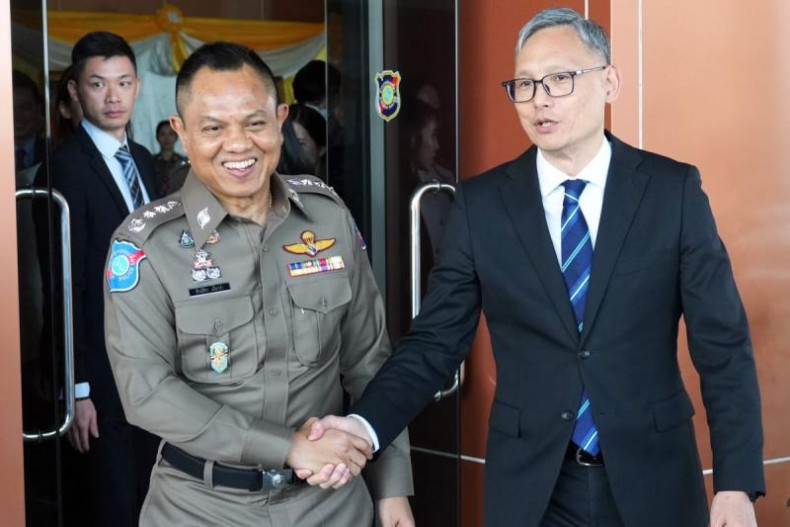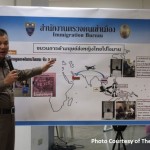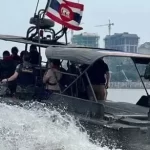
A Hong Kong task force met Thai police and tourism officials in Bangkok on Tuesday as part of efforts to recover a dozen city residents lured into working at scam factories in Southeast Asia, with the chief executive commending the delegation’s progress.
City leader John Lee Ka-Chiu said the task force had achieved “some positive results”, noting he had seen “strong attention and commitment” from Thai authorities.
He said the Hong Kong government had been using “all possible means” to rescue the victims, such as capitalizing on its connections with Interpol and establishing international anti-narcotics operations.
“[The details of the investigations] are not being made public, as this could affect the process of tracing the capital flow and helping the captives,” he said before his weekly meeting with the Executive Council, a key decision-making body.
Lee added that the Security Bureau would consider whether to upgrade its travel warning for Thailand.
The senior Thai police official earlier spoke with Wu Zhiwu, deputy chief of mission at the Chinese embassy, on Sunday about efforts to trace missing Chinese nationals, and exchanged views on how to tackle international fraud.
The task force also met Tourist Police Bureau Commissioner Pol Lt Gen Saksira Pheuak-um and Tourism and Sports Vice Minister Jakkaphon Tangsutthitham before the delegation left for Hong Kong on Tuesday evening.
Pol Capt Titiporn Kuptanond of the Tourist Police Bureau said Chinese tourists were the top users of its emergency assistance phone application last month, noting authorities had received requests for help from a few Hong Kongers.
The captain said more than 100 tourists used the app to seek help on a daily basis.
Hong Kong’s Security Bureau earlier said 12 residents, aged 21 to 43, were reported to have had their freedom of movement restricted in Southeast Asia, adding that they remained safe and able to communicate with their families or the task force.
Calls for the residents’ safe return have intensified since mainland Chinese actor Wang Xing, also known as Xing Xing, was kidnapped following his arrival in Thailand on Jan 3.
He was lured there under false pretenses by a fake casting agent for a filming gig.
Thai authorities later rescued him from an online scam operation in Myawaddy, a Myanmar city bordering Thailand. They confirmed he was a victim of human trafficking. He returned to the mainland last Friday.
According to the United Nations (UN), border towns in Thailand, Laos and Myanmar have become regional hubs for telecom and other online fraud, with hundreds of thousands trafficked to work in scam centres there.
“There have been signs of a resurgence in the situation where Hong Kong residents are suspected of being lured to Southeast Asian countries and detained to engage in illegal work,” the city’s government said on Sunday.
Such signs have grown since the second quarter of 2024, it added in a statement.
On Friday, China’s embassy in Myanmar urged vigilance by its citizens against telecom and online fraud following reports of compatriots lured to Myanmar’s border town of Myawaddy by online scams that promised “high-paying overseas jobs”.
Most of the trafficking victims hail from Southeast Asian countries as well as China, Taiwan and Hong Kong, but some also from as far away as Africa and Latin America, the UN has said.




